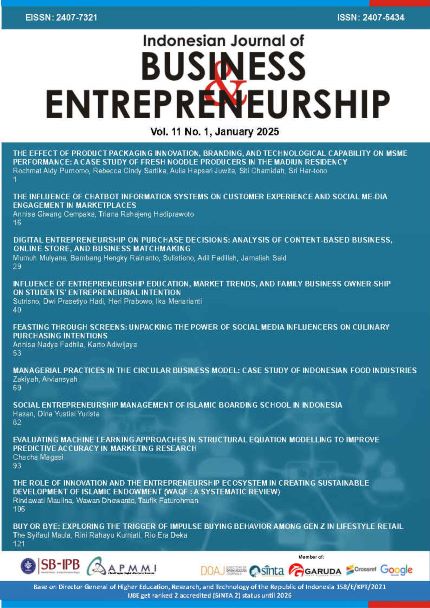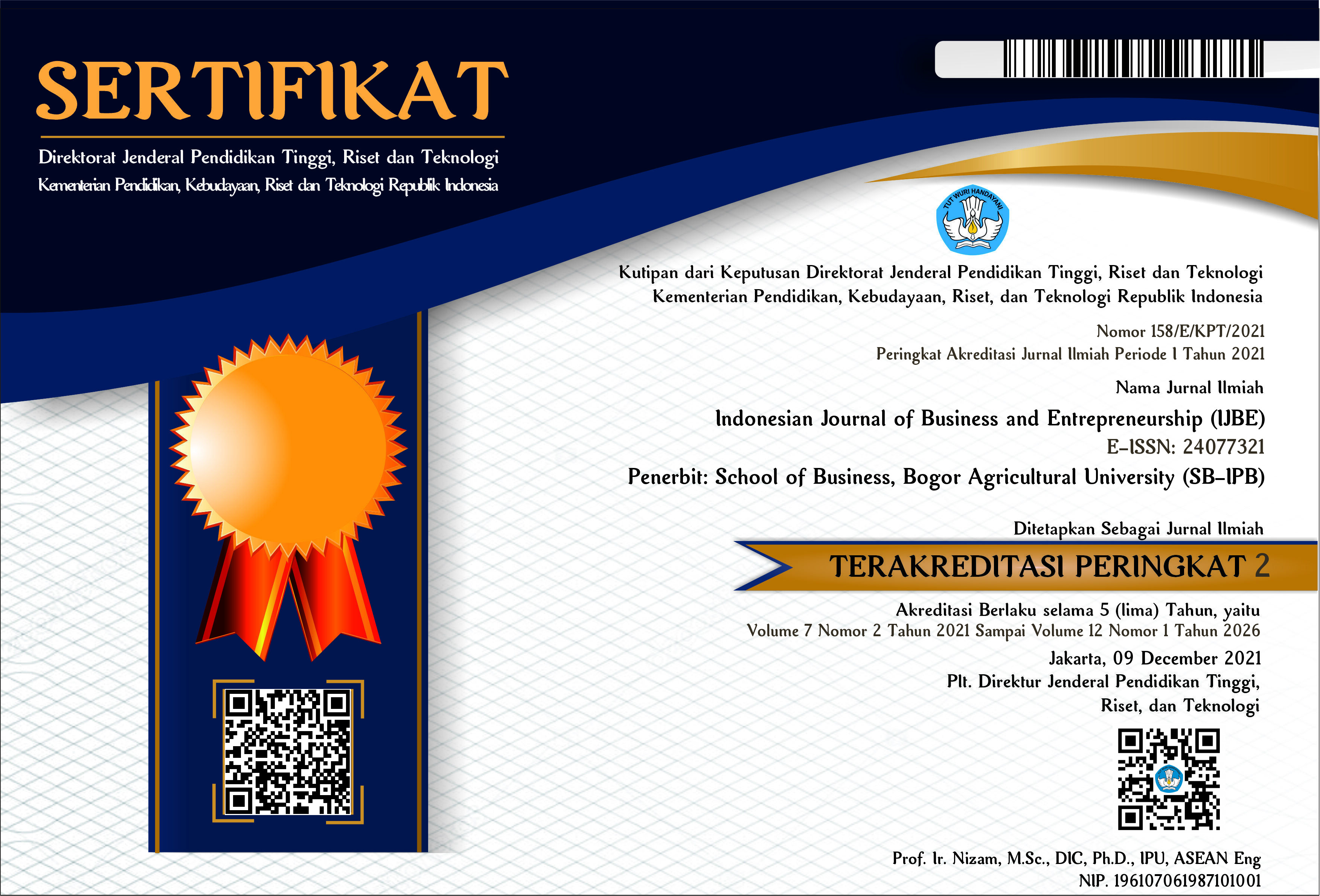The Effect of Gender-Role Orientation, Volition, and Parental Influence on Entrepreneurial Intention
DOI:
https://doi.org/10.17358/ijbe.11.1.147Abstract
Background: Indonesia's low percentage of entrepreneurs is impeding the country's economic progress, which in turn is exacerbating the country's high unemployment rate and low entrepreneurial inclination among the youth.
Purpose: This research examines the effect of gender-role orientation, volition, and parental influence on entrepreneurial intention among undergraduate students in Indonesia.
Design/methodology/approach: Data analysis for this quantitative study, which involved 172 Indonesian undergraduate students, was done using the Structural Equation Model - Partial Least Square. Purposive sampling was used to choose the sample, and questionnaires were used to collect data.
Findings/Result: The research concludes that feminine gender-role orientation and parental influence positively impact entrepreneurial intention, while masculine, androgynous, and undifferentiated gender-role orientations, as well as volition, do not have a significant effect.
Conclusion: To increase the number of entrepreneurs in Indonesia, it is crucial to develop entrepreneurial programs tailored to undergraduate students with a feminine gender-role orientation and to involve parents, given their significant influence on entrepreneurial intention.
Originality/value (State of the art): Despite traditional beliefs favoring masculine gender-role orientation in entrepreneurship, research suggests that feminine, androgynous, and undifferentiated orientations also have potential, and factors like volition and parental influence play crucial roles in shaping entrepreneurial intention.
Keywords: gender-role orientation, volition, parental influence, entrepreneurial intention, undergraduate students








